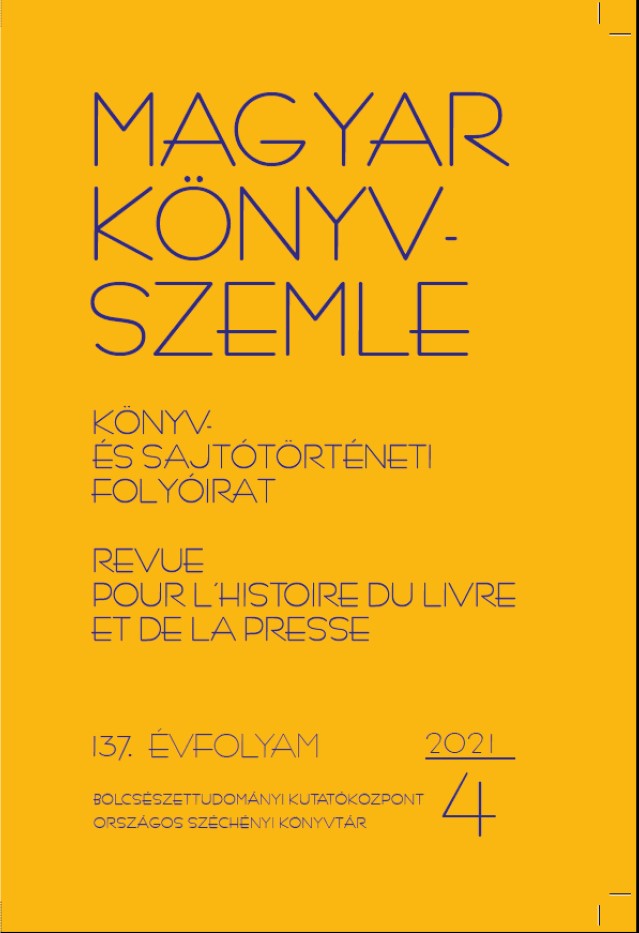The uses and reception of Sándor Kisfaludy’s Patriotic Appeal of 1809
Abstract
In the end of 1808, Sándor Kisfaludy was commissioned by Joseph Beckers, the adjutant of Archduke Joseph to write a short pamphlet on a future noble levy, to draw attention of the Hungarian nobility to the asset of their “obsolete privileges”. Kisfaludy finished it as a long, rhetorically lush, and thematically complex pamphlet in the early 1809, and the work was blue pencilled by Beckers and the Palatine to erase socio-politically sensitive parts. The work was published anonymously in late March – early April in Hungarian, and in the translation of Lajos Schedius in German. The Patriotic Appeal to the Hungarian Nobility became one of the most important propaganda works of its time, which was written first and foremost to the educated wealthy landed gentry, the leading political class of the country. The printing was conducted by the ideas of Kisfaludy. The present study reconstructs the „life-cycle” of the pamphlet within the frames of history of books, emphasizing the convergence between book and intellectual history, based on the idea of Robert Darnton. To this, on the one hand it will be shown, how this work was produced and circulated as a material
object, on the other hand, how it was received as a printed text by the contemporary literary public. To map the spread of the book, to analyse the traces of possessors and of various types of its usage and reading, this contribution tries to explore all the copies in existing and historic collections, as well as to examine the marginals and other notes in them.



